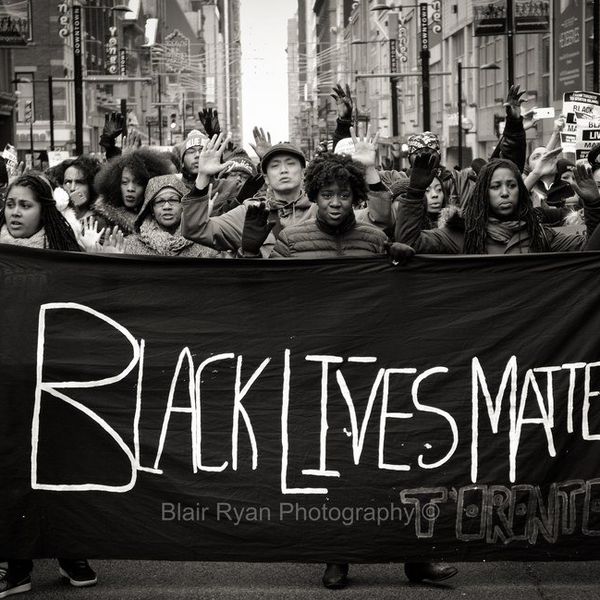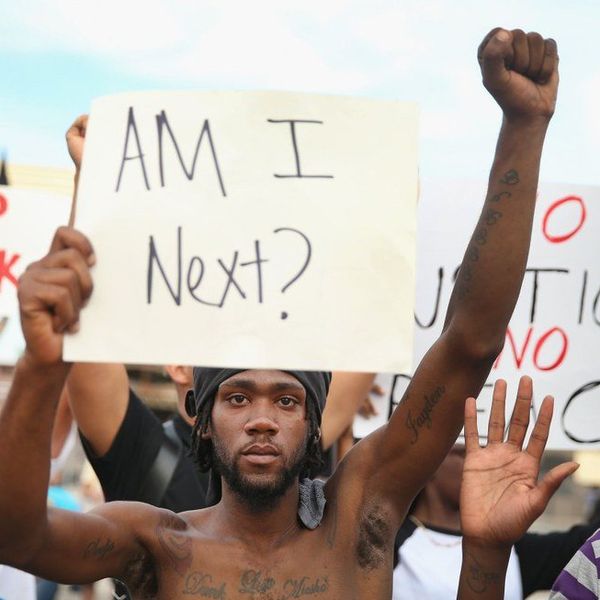This weekend I had the opportunity to watch the cutest dog, Orlando Richard, while his parents were away (See Orlando’s Instagram Here). I brought my black duffle bag to spend the night, and it was packed tight with textbooks, my laptop, and clothes for the weekend. On Sunday, I was lugging this big bag around as I was transiting around Manhattan: To Tribeca for Church, SoHo for Coffee, Randall’s Island for a Soccer Game, and Union Square for Hillsong. When I was in public places or on the subway, I started to get weird looks. Were people observing me simply struggling to carry this heavy weight, or were they thinking something else. I’m a young male, half Mexican and half Caucasian, with tan skin and course, curly hair. I’ve been told I look Moroccan, Indian, Greco, Portuguese, Arabic and more. When a nineteen-year-old male steps onto your train, wearing all black and carrying around a stuffed duffle, what do you think? With the recent bombings in Manhattan, your awareness and fears of terrorism are amplified. What do you think of this young man?
At the same time, I have to step back and realize where I’m at. Being mixed, I can enjoy being white when it’s advantageous and enjoy being Mexican, or a minority, when it’s advantageous. I come from a middle class household. I go to a great college. I live in New York City. I am Privileged. Regardless of who I see above me on the societal ladder, I’m still pretty high up and I was born into this. Simply being born into a good situation has made me a racist, a sexist, a classist. I have a blind spot for those people who know others are looking at them weirdly, just like I felt this past weekend. The difference is that some people have this thought everyday of their lives, wondering how they’re being perceived and judged by those around them. The duffle bag metaphor not only is an object of fear for those observing, but a heavy burden for those carrying.
The black duffle bag benefits no one.
Unless we carry it together.
Humanity’s black duffle bag right now carries a lot of soundbites. “Black Lives Matter.”, “Police Lives Matter.” “Women's Lives Matter” “Gay Lives Matter.” “Unborn Lives Matter.” “Mothers’ Lives Matter.” “Muslim Lives Matter”. As much as the majority—the white, straight, male majority—would love to see the slogan “All lives matter” placed in everyone’s bags, it’s simply not.
“All lives matter” sounds good, really good, in theory. I wholeheartedly agree with that phrase, at least when it’s disconnected with the context of our current situation. But as a juxtaposition to the statement of “[insert minority] lives matter”, it is used as a ploy to hide the current problems we face. An All Lives advocate argues that all lives are equal. A minority advocate agrees. The difference is the urgency of the situation, because minority lives aren’t being treated equally. Carl Lentz, my pastor at Hillsong Church here in NYC says this,
“At THIS church, we are not saying 'all lives matter' right now because this is a logical assumption that most reasonable people agree with. All lives are not at risk right now. We ARE saying BLACK LIVES MATTER. Because, right now, black lives apparently are worth LESS on our streets. It's "our fight" not "their fight.”
An analogy that depicts the Black Lives Matter movement so well is this: If your house is burning down, and you call 9-1-1 and ask them to send help because your house is burning, the dispatcher won’t say “Sorry, but all houses matter”. Your house gets help because your house is the one in peril. Black lives are in peril.
Correct me if I’m wrong, but much of the “All Lives Matter” conversation is generated from those who are White, Conservative, and often times, Evangelical Christians (of which I fall into 1.5 of these categories). While the last thing I want to do is to degrade you for your race, your ethnicity, or your religion, I do want to share a parable from one of my favorite teachers:
Jesus answered by telling a story. “There was once a man traveling from Jerusalem to Jericho. On the way he was attacked by robbers. They took his clothes, beat him up, and went off leaving him half-dead. Luckily, a priest was on his way down the same road, but when he saw him he angled across to the other side. Then a Levite religious man showed up; he also avoided the injured man.
“A Samaritan traveling the road came on him. When he saw the man’s condition, his heart went out to him. He gave him first aid, disinfecting and bandaging his wounds. Then he lifted him onto his donkey, led him to an inn, and made him comfortable. In the morning he took out two silver coins and gave them to the innkeeper, saying, ‘Take good care of him. If it costs any more, put it on my bill—I’ll pay you on my way back.’
“What do you think? Which of the three became a neighbor to the man attacked by robbers?”
“The one who treated him kindly,” the religion scholar responded.
Jesus said, “Go and do the same.” (Luke 10:30-37 MSG)
Lets not be the like the “religious” people in this story, too busy caught in their pompous pride to lend a hand to the urgent situation at hand. Our perceptions and our empathy to the minority will change the painful situations they live in. This could all be a symbiotic relationship, really. When we, the majority, show empathy and love to the minority, we help them get out of a hole that our ancestors, and maybe even a little bit of ourselves put them in, and we are enriched by the sharing of experience and love, the only nonperishable thing we have on this Earth. Empathy is not All Lives Matter. Empathy is Black Lives Matter. Empathy is Gay Lives Matter. Empathy is Women's Lives Matter. Empathy is Marginalized Lives Matter. I want stand next to people and be with them, and be for them.





















